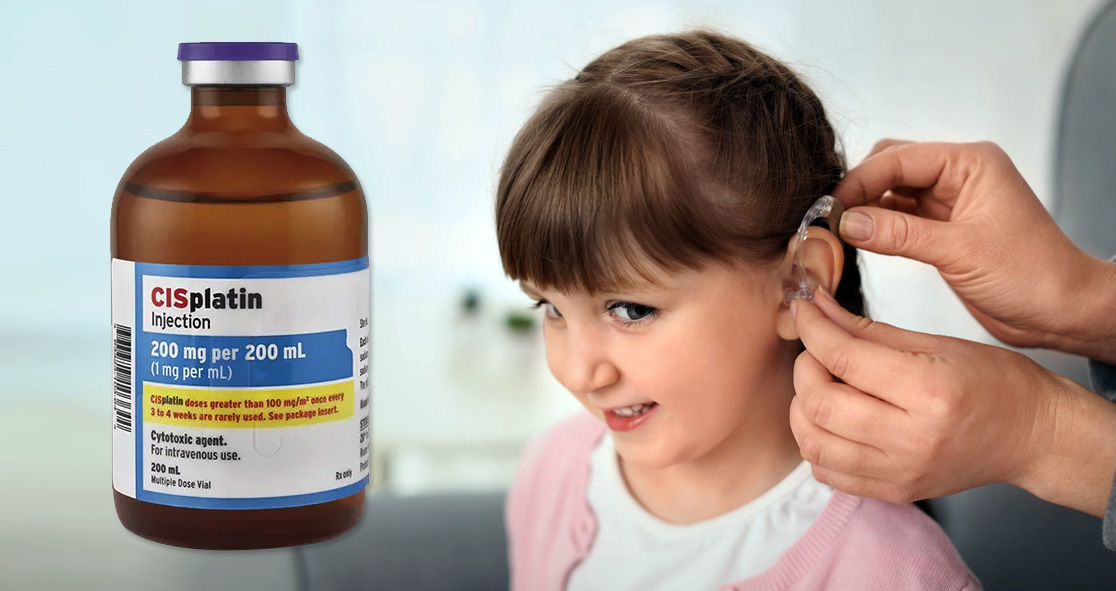A new study by the researchers of the University of British Columbia (UBC) has found that a commonly used chemotherapy drug, called cisplatin, is associated with hearing loss in children, according to Science Daily.
The study, published Tuesday in the journal Cancer, found that younger children with cancer who receive cisplatin are at risk of developing hearing loss, which is affected to a greater extent later in their lives.
Senior author Dr. Bruce Carleton of UBC said, “This is significant as even a moderate loss of hearing can impact social development in children, particularly when it occurs during a peak time of language acquisition.”
Previous research has shown that about 60% of children treated with cisplatin suffer from hearing impairment, while nearly 40% of those children will need hearing aids.
To understand the association between cisplatin and hearing loss, Dr. Carleton and his team looked at 368 Canadian childhood cancer patients who received cisplatin. The participants underwent more than 2,050 audiological assessments.
After three years, around 75% of patients aged five and younger, and 48% of patients aged five and above had experienced cisplatin-induced hearing loss.
The researchers also found that a year after initiating therapy, 61% of patients aged five and younger had experienced hearing loss related to cisplatin. And after three months, 27% of the same age group had experienced hearing loss.
Furthermore, a higher dose of cisplatin at three months along with another chemotherapy drug vincristine, and a longer duration of antibiotics exacerbated cisplatin-related hearing loss over time.
However, the underlying mechanism of the higher incidence of cisplatin-related hearing loss in younger children remains unclear. The team believes that cisplatin may cause toxic effects in the maturing structures within the inner ear.
Dr. Carleton said, “These results emphasize the need for audiological monitoring with each cycle of cisplatin treatment. Further investigation is needed to illuminate why younger children are more vulnerable to hearing loss and how best to protect hearing while administering this life-saving therapy.”





















